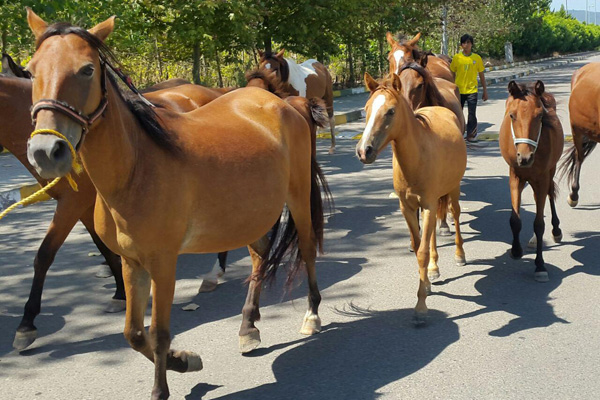No significant correlation was seen between serum electrolyte and gastric ulcer or cardiac arrhythmia.
Mokhber-Dezfouli, M.R.1 *, Ansari, D.2 , Hasanpour, A.3 , Nadalian, M.G.1 , Seifi, H.A.4 , Lotfollahzadeh, S.1 Rahchamani, R.2
1 Department of Clinical Sciences, Faculty of Veterinary Medicine, University of Tehran, Tehran-Iran.
2 Graduted from the Faculty of Veterinary Medicine,University of Tehran, Tehran-Iran.
3 Department of Clinical Sciences, Faculty of Veterinary Medicine, Islamic Azad University of Tabriz,
Tabriz-Iran.
4 Department of Clinical Sciences, Faculty of Veterinary Medicine, Ferdowsi University, Mashad-Iran.
(Received 7 December 2008 , Accepted 5 October 2009)
*Corresponding author’s email: mokhberd@ut.ac.ir, Tel:021-66923748, Fax:021-66933222
Peptic ulcer is a very common disorder in horse race and foals. In the present research possible relationship between gastric ulcer and the prevalence of cardiac arrhythmia were studied in two different horse race. In this respect, 13 Caspian miniature horses and 8 Arab horses were studied. Gastric ulcers and cardiac arrhythmias were diagnosed in 13 horses (62%) and 12 (57%) out of 211 horses, respectively. The observed cardiac arrhythmias were sinus tachycardia, sinus bradycardia, sinus arrhythmia, second degree AV block and SA block. There was no significant relationship between gastric ulcer and cardiac arrhythmia in general and between gastric ulcer and each kind of arrhythmia (p>0.005). Serum calcium, potassium, sodium, magnesium and inorganic phosphorous concentrations were measured in the horses. No significant correlation was seen between serum electrolyte and gastric ulcer or cardiac arrhythmia. Despite lack of significant correlation between cardiac arrhythmia and gastric ulcer, more occarence for some kinds of arrhythmia in affected horses with gastric ulcer was very interesting and need to be further investigated in future.
keywords; arab horse, Arrhythmia, Caspian miniature horse., gastric ulcer, Horse

